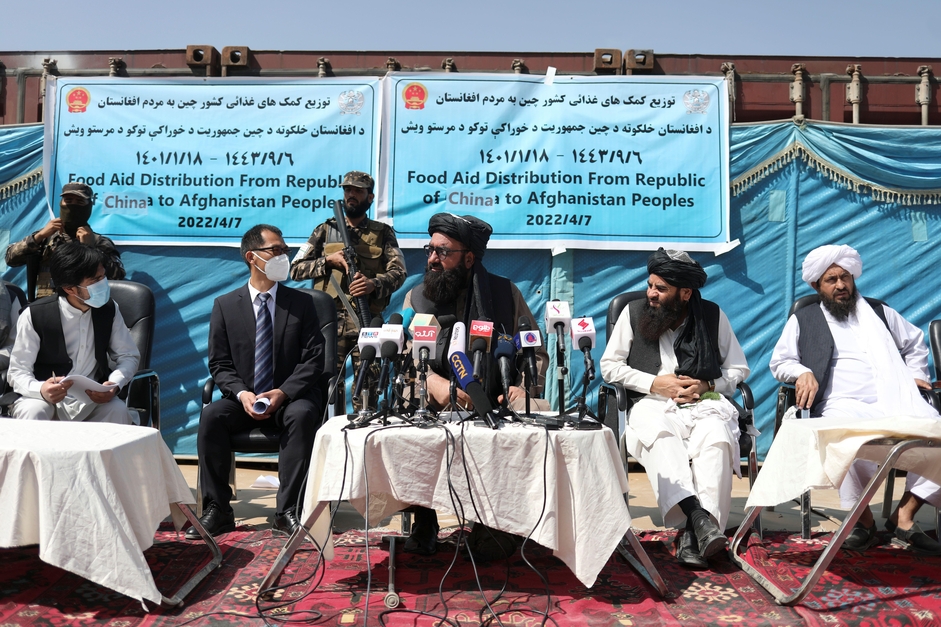In a damning report from the foreign affairs committee, MPs say the Foreign Office, the National Security Advisor and Ministers must accept responsibility for the failure to prepare or respond, abandoning the UK’s allies and damaging the UK’s interests.
Missing in action: UK leadership and the withdrawal from Afghanistan is the result of the committee’s inquiry into government policy towards the country. The committee considered the role of the Foreign Office in the run up to withdrawal, during the evacuation effort, and in leading engagement with the new regime in the following months. They heard from senior officials; met with Afghans who were evacuated; surveyed MPs’ offices on their efforts to help Afghans; and received written, often sensitive, evidence from a wide range of stakeholders including two Foreign Office whistleblowers.
The MPs’ inquiry found that important policy decisions were made through informal, unaccountable means. Senior officials believed that the Prime Minister played a greater role in some decisions than has been admitted. The committee was not offered a plausible alternative explanation. More seriously, the FCDO provided answers that were intentionally evasive and often deliberately misleading. Government officials should not be expected to obscure the facts to shield others from political accountability.
Today’s report refers to the ‘appalling mismanagement of the crisis’ and the misleading statements to Parliament which followed. Those who lead the Foreign Office should be ashamed that civil servants of great integrity felt compelled to risk their careers to bring the situation to light, says the report. It is the responsibility of the Permanent Under-Secretary to ensure the system operates effectively, leading the committee to conclude that he no longer has their confidence and should consider his position.


The report urges the UK government to commit to a serious strategy for future engagement with Afghanistan. The failure to do so would abandon women and girls in the single biggest reversal of rights in a generation.
The committee calls on the government to re-establish a diplomatic presence in Afghanistan as soon as it is safe to do so, and to work with those on the ground who can support civil society. Attempts to isolate the new regime entirely may only hurt the Afghan people and leave a vacuum to be filled by China.
The Taliban have outlawed any Uyghur “militants” within their territory. Around 1 million Uyghur Muslims are estimated to be imprisoned in Chinese “re-education” camps, where they are subject to human rights violations.
Today’s foreign affairs committee report argues that humanitarian aid alone will not be enough to avert catastrophe and that the UK should aim to resume development aid when possible, placing Afghan women at the heart of its policy towards the country.
The UN World Food Program say up to 20 million people in Afghanistan are in desperate need of food following drought, the impact of the pandemic and the slashing of foreign aid after the Taliban takeover.
Foreign affairs committee chair, Tom Tugendhat MP, said: “The UK’s part in this tragedy exposes a lack of seriousness in achieving co-ordination, a lack of clear decision-making, a lack of leadership and a lack of accountability. At a time when we face critical foreign policy challenges, and the risks to our lives and economy are so serious, including from the current energy and inflation pressures, our diplomacy and security cannot be so confused and unstructured. Unity of purpose, clarity and coordination require serious intent and consistent political leadership.
“The timeline of misery exposed by this report reveals serious systemic failures at the heart of the UK’s foreign policy. The absence of the FCDO’s top leadership – ministerial and official – when Kabul fell is a grave indictment on those supposedly in charge. While junior officials demonstrated courage and integrity, chaotic and arbitrary decision-making runs through this inquiry. Sadly, it may have cost many people the chance to leave Afghanistan, putting lives in danger. The integrity of the Civil Service depends on those leading these organisations showing the courage to tell the truth to the British people.
“There are many heroes in this story who worked under enormous pressures. The military and civilian personnel on the ground in Afghanistan, and many in the FCDO itself, during the evacuation and those who helped from afar deserve our thanks. Now, Afghanistan faces a terrible humanitarian crisis with 23 million people at risk of starvation and the rights of women and girls have faced their greatest reversal in a generation. All this while the threat from extremism has grown. We need a serious rethink in the heart of the UK government to combine diplomacy, aid and trade in a concerted and strategic approach to future policy towards Afghanistan.”
A government spokesman said following the report’s release: “Our staff worked tirelessly to evacuate over 15,000 people from Afghanistan within a fortnight. This was the biggest UK mission of its kind in generations and followed months of intensive planning and collaboration between UK government departments. We are still working hard to assist the people of Afghanistan, having already helped over 4,600 individuals to leave the country since the end of the military evacuation.
“We carried out a thorough review to learn lessons from our withdrawal from Afghanistan and have drawn on many of the findings in our response to the conflict in Ukraine including introducing new systems for managing correspondence and increasing senior oversight of our operational and diplomatic response.”












